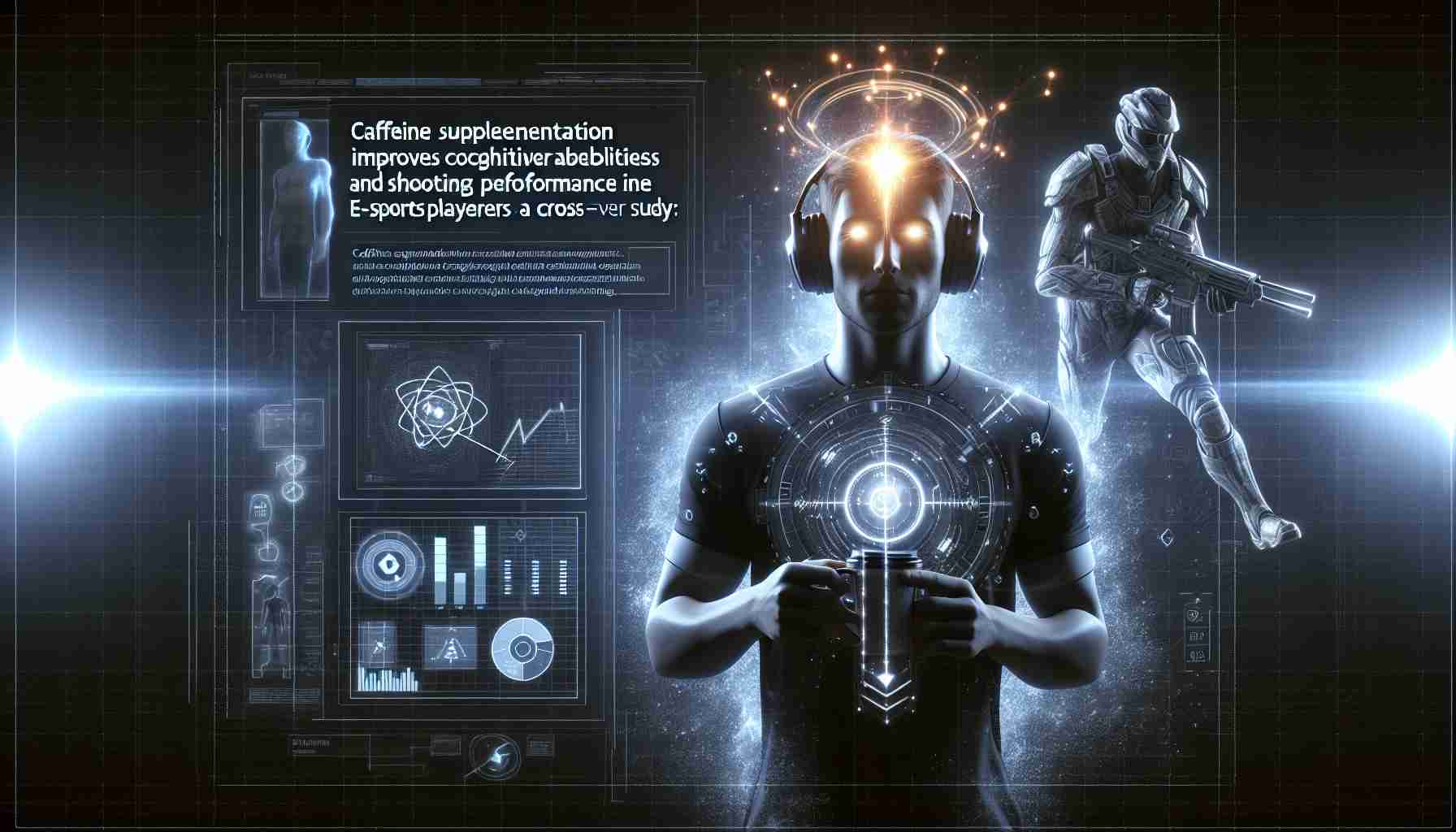In a recently published study, researchers examined the impact of caffeine supplementation on the shooting abilities of professional e-sports players. The study, published in the journal Scientific Reports, aimed to evaluate the effects of consuming 3 mg/kg of caffeine, compared to a placebo control group. The results showed that caffeine supplementation significantly improved reaction time, visual search time, and shooting performance in players who consumed caffeine compared to the control group. This means that consuming 3 mg/kg of caffeine by professional e-sports players before a match can enhance their performance during gameplay.
E-sports is a form of competitive sports where players compete against each other in computer games. Over the past decades, the e-sports industry has gained popularity, with the e-sports market value estimated to reach 1.72 billion dollars by 2023. Many countries have recognized e-sports as an official sports discipline. The inclusion of e-sports as a demonstration event in the 2018 Asian Games in Jakarta and as an official sports discipline in the 2023 Asian Games in Hangzhou further contributed to its popularity. It is currently estimated that its market share will increase to 6.8 billion dollars by the end of this decade.
Research on professional e-sports players has shown that they perform better in Stroop tests (reaction time) and visual search skills compared to recreational players. This suggests a relationship between cognitive abilities and success in e-sports, thereby opening up the possibility of using natural supplements to enhance these abilities. One such supplement, popular among athletes in various sports, is caffeine. Caffeine acts as an effective ergogenic supplement, improving mood, energy levels, reducing fatigue, and potentially affecting cognitive functions by inhibiting the action of endogenous adenosine.
While there is existing literature on the impact of caffeine supplementation on e-sports performance, studies regarding fast-paced first-person shooter games are limited and mainly focus on reaction time, lacking data on shooting performance and visual search time. Considering that caffeine is medically recommended at safe doses of consumption (3-6 mg/kg), determining the effects of small doses of caffeine on e-sports performance could provide players with a slight competitive edge.
The study was conducted on nine male professional e-sports players with an average age of 20.8 years. The study participants were randomly assigned to either the experimental group (3 mg/kg of caffeine consumed one hour before the game) or the control group (placebo). The experimental protocol involved ingesting a capsule containing the test substance (caffeine or placebo) with 200 ml of water, followed by one hour of rest before starting the gaming session. Reaction times and visual search times were measured using the Stroop test and visual search test, respectively. Shooting accuracy and performance during precision training were also evaluated based on results from a three-dimensional precision training.
The results of the study showed significantly shorter reaction times and visual search times in the experimental group that supplemented with caffeine compared to the control group. Additionally, shooting accuracy, number of hits, and time taken to hit the target were significantly better after consuming caffeine. These results indicate the potential use of caffeine in the context of e-sports competition and provide a basis for further research into improving cognitive performance (e.g., through the use of caffeine alone without water).
In summary, supplementing with 3 mg/kg of caffeine one hour before a game can have a positive impact on the performance of professional e-sports players in first-person shooter games. This study may encourage coaches and players to consider using caffeine as a supplement before important competitions to enhance competitive results.
FAQ:
1. What was the aim of the study described in the article?
The aim of the study was to examine the impact of caffeine supplementation on the shooting abilities of professional e-sports players.
2. What impact was demonstrated after caffeine supplementation?
The results of the study showed that caffeine supplementation improves reaction time, visual search time, and shooting performance in e-sports players.
3. What is e-sports?
E-sports is a form of competitive sports where players compete against each other in computer games.
4. How has e-sports gained popularity in recent years?
The value of the e-sports market was estimated at 1.72 billion dollars in 2023, and it is predicted to reach 6.8 billion dollars by the end of this decade.
5. What results do professional e-sports players achieve in Stroop tests?
Research has shown that professional e-sports players perform better in Stroop tests, which measure reaction time.
6. How does caffeine work as an ergogenic supplement?
Caffeine acts as an effective ergogenic supplement, enhancing mood, energy levels, and reducing fatigue.
7. What were the findings of the study on caffeine supplementation in e-sports?
The study found shorter reaction times, visual search times, and improved shooting results after consuming caffeine.
8. What is the recommended dosage of caffeine?
Caffeine is medically recommended at safe doses of consumption, in this study, it was 3 mg/kg.
Definitions:
– Supplementation: the process of providing the body with substances that are deficient in the diet.
– Caffeine: a natural substance found in coffee, tea, and some energy drinks that stimulates the nervous system.
– E-sports: a form of competitive sports played in computer games.
Suggested related link: [E-sport article](www.example.com)
The source of the article is from the blog lanoticiadigital.com.ar
